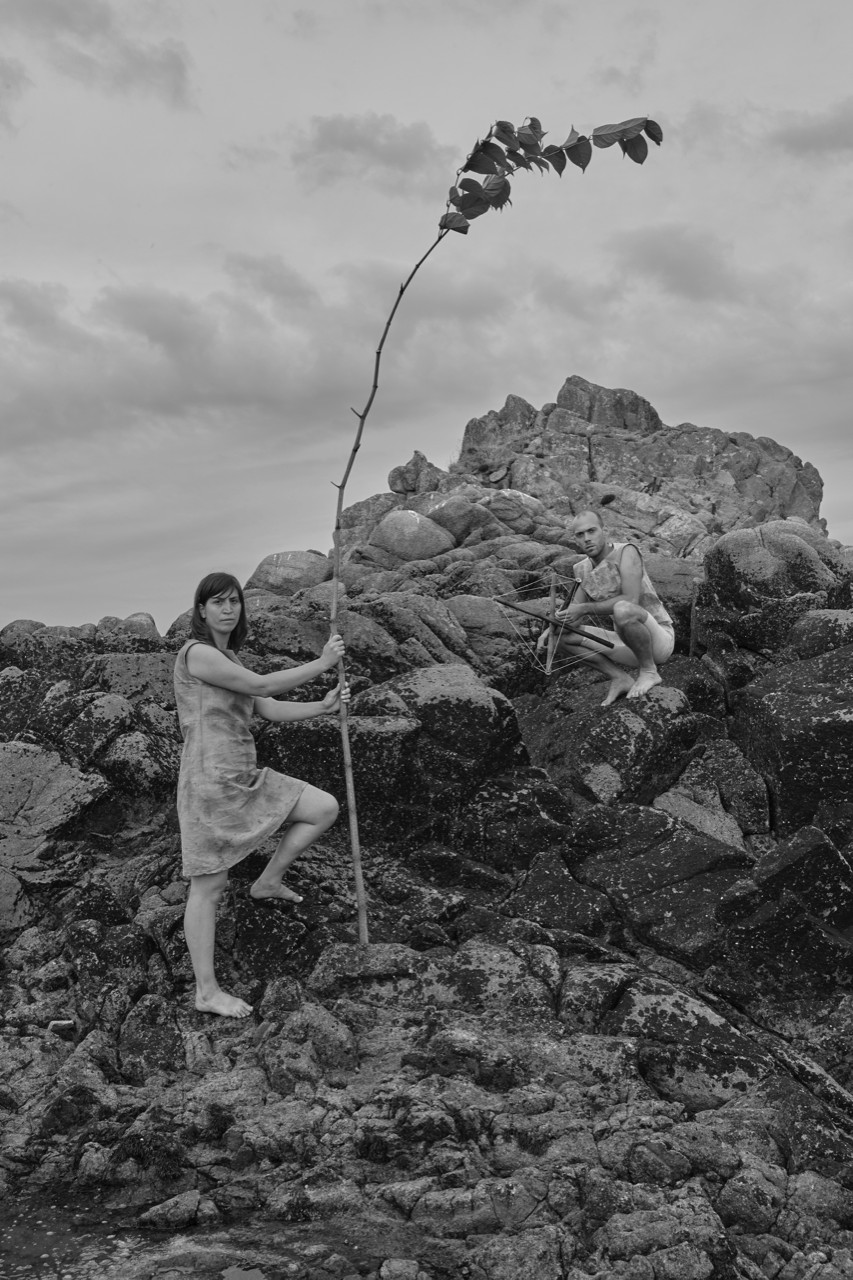The Wild Garden Utopia project takes place in an imagined ecosystem emerged from the ruins of our current situation.
The land is dominated by the pioneer species Japanese knotweed, and the plant is the key resource for human survival.
From an anthropocentric point of view, this introduced plant that can destroy infrastructure is harmful. But in its natural habitat, a hostile volcanic land, it is the first plant capable of breaking through the lava and pioneering for other living organisms. In a likewise hostile city landscape, it does the same thing with concrete, building a new urban ecosystem.
In our utopia, instead of green xenophobic demonization of the Japanese knotweed, we consider it to be part of the ecosystem and use it as food, to build, and to play music. In the festival we present a video on our wishful thinking for the coexistence
of plants and humans on an island: musical instruments that we made from Japanese knotweed – simple sounding devices using the natural shape of the plant and based on archetypes that are common around the world – supported by an installation quoting architecture destroyed by the plant.
Kitti Gosztola (HUN)
graduated from the University of Fine Arts, Budapest. Her main focus is on the aesthetic and social dimensions of the structures and politics of natural sciences.
kittigosztola.com
Bence G. Pálinkás (HUN)
realizes projects on the ethical dilemmas of our imagined communities and is currently working on the Little Melting Pot, a project about multi-ethnic nationalisms in the 19th century.
en.palinkasbencegyorgy.hu
